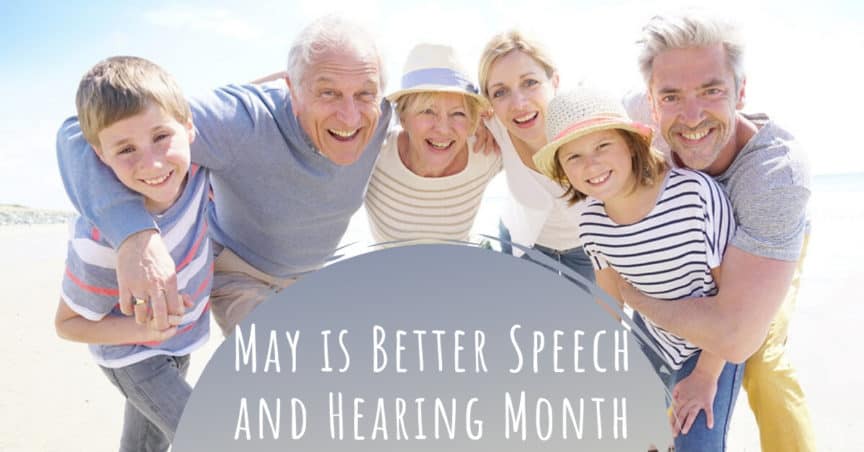Did you know that this month is Better Speech and Hearing Month? Throughout May, the American Speech-Language and Hearing Association (ASHA) is raising awareness about issues connected to to the ability to communicate, including those surrounding hearing health. For 2019, their theme is “Communication Across the Lifespan.” which highlights the need for communication methods to be maintained throughout one’s life. And as we’ll see in the story below, treating hearing loss is very important in allowing us to communicate with others, as well as developing the social, linguistic and mental skills needed to succeed in life.
Six young Floridian siblings are thriving after getting their hearing restored
There were not given the best start in life. But now a family of siblings, who were all born deaf, are have now all been given the gift of hearing. And they are using it to their full advantage, in the classroom and among family and friends.
Matthew, 16, Marcus, 15, Michelle, 13, Maria, 10, Miley, 8, and Marcia, 6, have all been fitted with bilateral cochlear implants as part of the University of Miami Ear Institute’s cochlear implant program.
“They are doing wonderful; it is absolutely a miracle what these implants have done for these children,” beamed Peggy Guillou of Cutler Bay, FL, who is the legal guardian and grandmother of the six children.
A team of specialists working together
The surgeries were performed by Dr. Fred Telischi, chairman of otolaryngology at the University of Miami Health System. His program has performed about 2,000 of these surgeries since 1990. Half of these have been on children, with the youngest being 7 months, according to Telischi. He says the outcomes are usually very positive.
Although the implants were a huge boost for the Floridian siblings, it was only the start of the medical interventions needed to develop the children’s language, mental and auditory skills. An entire team of specialists in otology, audiology, speech pathology, psychology and educational services collaborate regularly in order to bring the children up to speed. The children require regular speech therapy sessions, meetings with an education liaison officer, and psychological counseling, as well as help with the maintenance of their cochlea implants.
Their grandmother, however, is not leaving everything up to the medical specialists. She sets the siblings regular ‘homework’ outside of school in the form of book reports. “It helps them with comprehension and on their vocabulary and their writing.” She says.
Hearing loss and children’s development
It’s important to remember that the Guillou family is an unusual case of children being born with hearing loss. On average, only about 2 in every 1000 children develop hearing loss at birth. Parents should however be vigilant of their own children’s hearing loss and treat it quickly when they find it. If this isn’t done, speech, language and educational issues are likely to arise.
“The important part of having hearing over the first several years of life, 0 to 3, is to develop speech and language … so that’s why it is important to identify these kids early,” Telischi said.
Domitille Lochett, an auditory-verbal therapist with UHealth, agrees. “Even mild hearing loss or impaired hearing in one ear can cause a child to miss as much as half of a classroom discussion,” she wrote in a UM report.
Maria was under 2 when she got her implants and started her classes at the Debbie School, an institute for children with disabilities that’s part of UM’s Mailman Center for Child Development. Now at a regular elementary school, she recently made the honor roll in her class. As a confident and smart 10-year-old, she has just finished a children’s summer reading program.
“She’s into it; she’s doing very well,” her grandmother said.
This story really highlights the importance of hearing health in the development of language and speech, as well as educational achievements. However, hearing health is not only important for children, Adults too need to be aware of their own hearing loss. Untreated hearing impairments in adults is associated with social isolation, anxiety, stress and depression. It’s never too late to put your hearing health under the spotlight.

